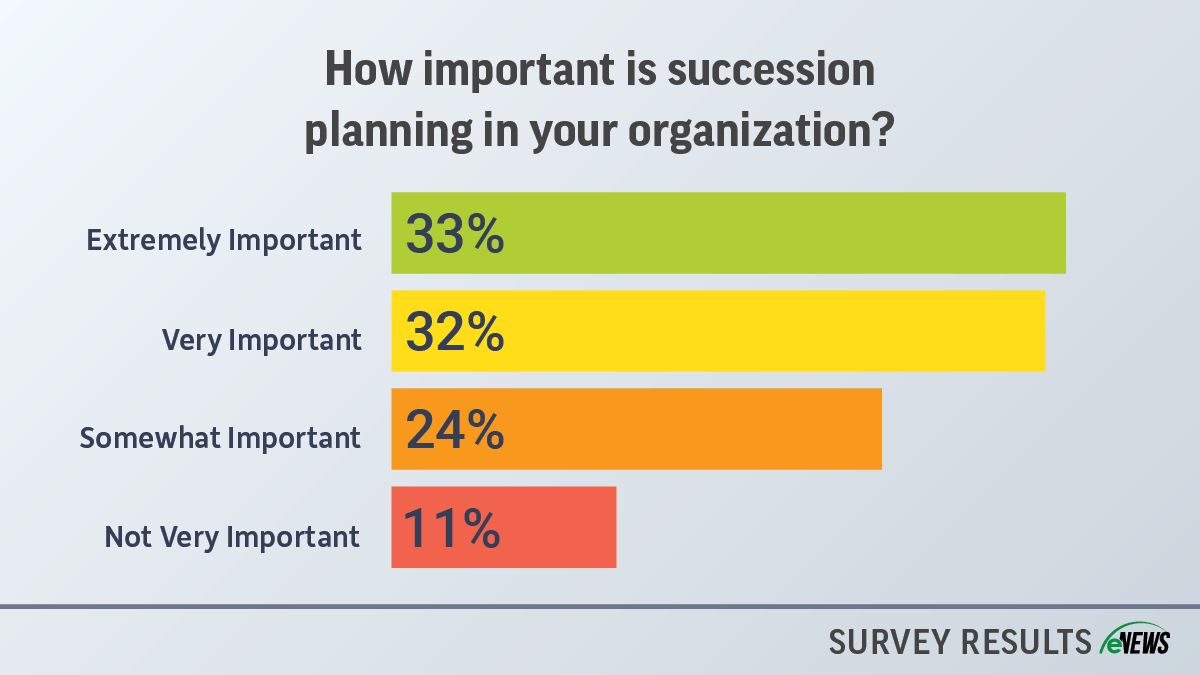eNews, Leadership
Planning your exit: The importance of succession planning

As a credit manager, you’ve likely grown accustomed to the everyday grind that your work brings: reviewing credit reports, determining credit limits and working with customers. While your day-to-day workload is vital to your company’s success, you may need to take a step back and think, who is going to take over when I leave my position?
Why it matters: Succession planning can be daunting, but it is vital to keeping a company thriving during periods of transition.
Whether you are just settling into a new position or considering how you will retire from the one you’ve held for decades, succession planning might cross your mind. But it can be hard to gauge when to start planning and what the process will look like.
Succession planning allows a company to look internally for candidates to take on higher positions, building a loyal and connected staff prepped for the everyday challenges credit management brings.
For Tracy Turner, CCE, credit manager at SitePro Rentals (Alvarado, TX), her company asked her to create a succession plan within a year of her starting. “I am glad that they have us think through the process and evaluate our staff for the future,” Turner said. “It also shows that our company plans to grow the employees we have internally before looking outside.”
By the numbers: According to an NACM poll, 33% of credit managers consider succession planning to be very or extremely important. While many credit managers seem to agree on the importance of it, that doesn’t make the process any less challenging.
The biggest challenge is choosing a successor. Succession planning is an opportunity to develop new talent within your company and aid their career advancement. According to Michael Pica, CICP, credit and collections manager at Civil & Environmental Consultants, Inc. (Moon Township, PA), there’s a host of information that can help determine if a person is suited for your role.
“Performance reviews provide insights into the individual’s past achievements, work ethic and areas for improvement,” Pica said. “Career aspirations help align the candidate’s personal goals with the organization’s future needs, ensuring mutual growth and satisfaction. Experience and expertise are key in assessing the candidate’s ability to handle the responsibilities of the role, leveraging their knowledge and skills to drive success.”
Marrying succession and leadership development can help maximize the effectiveness of both, according to Harvard Business Journal. By nurturing young professionals’ leadership skills, they are unknowingly being primed for a higher leadership position. A company that focuses on leadership development early on will have an easier time finding young professionals prepared to take on leadership roles in the future.
“In my experience, it’s best to initiate succession planning as early as possible,” Pica said. “Given that some tasks are performed on a quarterly, semi-annual or annual basis, I prefer to start planning early to ensure the successor gains hands-on experience with every task they will assume in their new role.”
To best prepare a successor for their new role, it’s important to take small steps regardless of their previous experience. Some might start strong, hitting the ground running and quickly adapting to their growing responsibilities, while others might need a little more assistance.
“Being available for Q&A sessions is crucial, as it allows them to reflect on tasks and seek additional input they might have missed during regular business activities,” Pica said. “Once they are comfortable with each task, it’s time to introduce the next one, repeating this process until they are self-sufficient and reliable in their role.”
The bottom line: Taking on a new role is hard, and leaving one you’ve had for years is even harder. It can be difficult to distill all you do into small manageable pieces for your successor to digest, which is why it is important to make succession planning a top priority.





